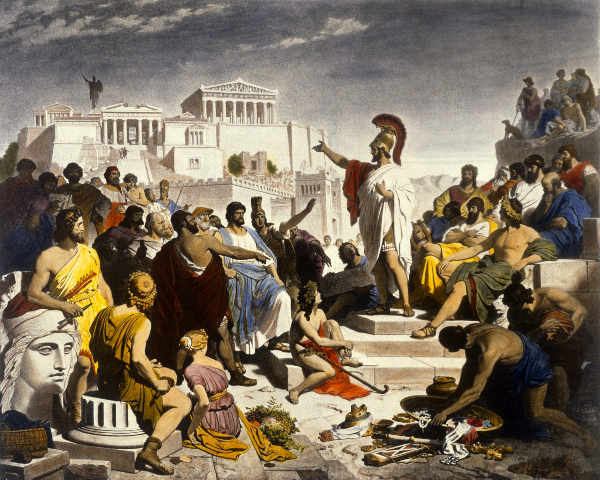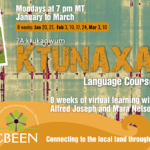COMMENT: From Constitution Bylaw to Delegation Bylaw--a short history of democracy in the Mountain Kingdom
The City of Rossland’s response to a public clamouring to learn who did what, with which, and to whom in a matter concerning arena renovations was a reassurance from the mayor that, notwithstanding a few unfortunate and regrettable miscues, all is well, on time, and on budget.
Vague references to a Constitution Bylaw were made in that context. This was Bylaw #1728 to which Rossland Council had given final reading on December 10, 1990, following a referendum attracting a 65 percent turn-out and an 84 percent ‘yes’ vote. The short title of that bylaw was “Constitution Bylaw”, but this was a mirage, there was no constitution to be found in that bylaw.
I am not suggesting that the council of the day, or I as its administrator, set out to mislead or deceive the community. Council had reviewed the outline of a municipal constitution and had been debating its merits for a month before Bylaw #1728 was written. The problem is that I took a short-cut from the discussion paper’s vision to its implementation. The bylaw held not a single word on the paper’s vision; it was limited to the administration of that vision. Mea culpa. The vision of a municipal constitution was articulated in a discussion paper titled “A Constitution for Local Government” which I presented to Council in August 1990.
Council, in a casual conversation following the adjournment of a regular meeting in the summer of 1990, noted with a blend of frustration and concern that few citizens ever attend a council meeting unless there is something to complain about. Council members were concerned about an apparent lack of public concern, care, or engagement in and about matters on its agenda. Council members knew that they had been elected to govern, but governing in apparent isolation (notwithstanding press presence) did not feel right. Reflecting on that conversation I decided to write a discussion paper for council on the subject of democratic governance at the municipal level.
The discussion paper spoke to the difference between legislative and executive powers. The first step in democratic governance is a legislative one: “This is the law by which we shall all live.” The second step is an executive one: “Let’s do what the law says.”
Separating these two functions is as critical as elections are to the distinction between democratic governance and all other forms. That separation of powers does not exist in municipal government. Council is at one time the municipality’s legislative and executive body. Council meetings deal with legislative decisions (adopting bylaws) alongside executive decisions (awarding contracts) without distinction; they are mere line items on a single agenda. The discussion paper argued that “without the separation and balance of powers, elected representatives inevitably assume the role of elected rulers.”
The argument was that when the two functions are blurred, indistinguishable in the process by which they are performed, it becomes easy, which means convenient, when circumstances are right, to confuse their order. Democracy is reduced to a ghost when action is already decided by the time council goes through the formality of passing a law to authorize the action.
The Municipal Act requires three readings for bylaws and imposes a one day break before adoption. There is a purpose to each of the three distinct readings and to the one day break before adoption. That purpose is lost to most council members. I base that claim on my observations of the bylaw approval process as it is practiced today in Rossland for most bylaws when the first two readings are combined into a single motion, followed immediately by a motion for third reading.
The idea raised in the discussion paper was to insert citizens into the legislative process under Council’s authority to delegate some its powers, and to do so in a way to make it impossible for council to drift into a “first we do it and then we make it legal” mode of decision-making. The process to implement that idea was established in the Constitution Bylaw, but the idea itself, its rationale, purpose, and objective, was omitted. Creating a distinction between legislative and executive powers was a principal purpose for the Constitution Bylaw, and this should have been stated clearly.
One Constitution Bylaw principle is that public participation is fundamental to good local government. That principle was argued in the discussion paper, but it was not spelled out in the bylaw itself. That omission is likely the reason why the philosophical idea began to evaporate as Council members and the administrator who had been part of the bylaw’s creation left.
In 2005 Council grew concerned about the possibility of the public making use of its powers under the Constitution Bylaw in the matter of a proposed development. Council asked two law firms for advice on the Constitution Bylaw’s procedures. Council was offered a number of suggestions as to how the bylaw could be amended to remove any conflict with provincial law while preserving its original objectives to the highest possible degree. Council elected to simply rescind the Constitution Bylaw and be done with it.
Just four years after rescinding the Constitution Bylaw, by which Council had extended legislative powers to citizens, it adopted the Delegation Bylaw #2473. With this bylaw Council delegated all the powers, duties, and functions the Community Charter allowed it to delegate. The difference is that this time Council did not delegate one carefully defined power to the citizens of Rossland, it delegated all the powers, duties and functions it could to a single person: the CAO.
Today Rossland citizens may want to reflect on their community’s political evolution over the past two decades. Is their current form of public engagement in their municipality’s public business preferable to what the Constitution Bylaw offered in the 1990s?
Andre Carrel is a retired City Administrator, journalist, author, and full-time grandpal.

























